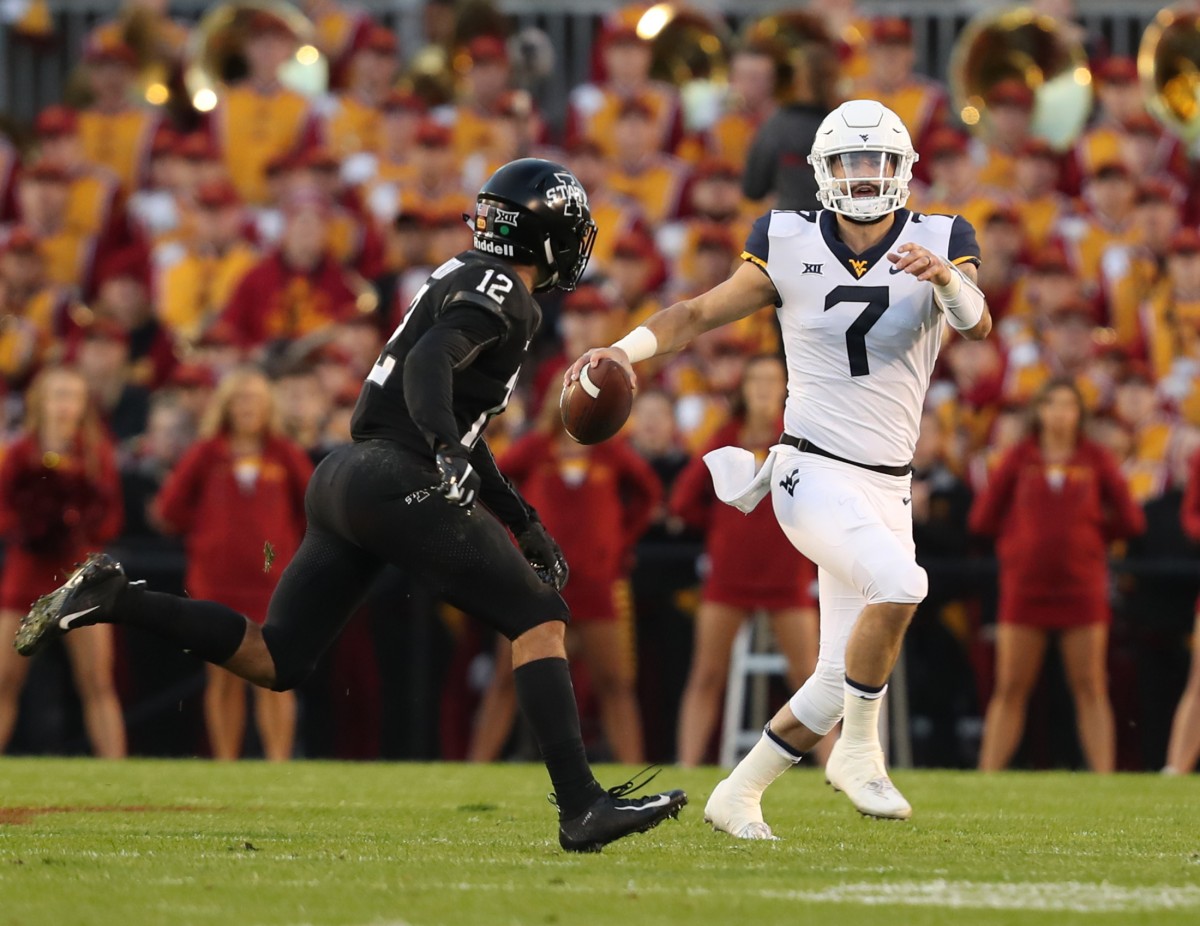MORGANTOWN, W.Va. – Those “Keep Calm and Carry On” t-shirts that were popular a couple years ago could feasibly make a return around the West Virginia football facility this week. Perhaps they can even been customized with a WV logo, or a cut-out of Dana Holgorsen’s face.
Holgorsen was forthright about his team’s shortcomings in a 30-14 loss at Iowa State on Saturday night, but also said that maintaining an even keel is essential to making sure it remains the low point for the 2018 Mountaineers.
“You’re not going to see panic out of me or our program,” Holgorsen said. “You’re not going to see panic out of our players, or, in particular, our senior leaders. This is going to motivate us more than it’s going to discourage us, I can guarantee you that.”
There’s plenty to be motivated by.
West Virginia’s offense had all kinds of woes. There was the 152 total yards, including an embarrassing minus-2 yards in the fourth quarter. Seven sacks allowed. And just 100 yards passing from quarterback Will Grier.
Holgorsen said that there were many things that Grier could have done better against the Cyclones.
“Will has to trust what’s going on. He has to trust the o-line to do their job, and he has to sit back there in the pocket,” Holgorsen said. “He has to keep his eyes where we want him to keep his eyes, throw the balls we want him to throw and have the confidence to do it. He will do that moving forward.”
At moments, Grier didn’t have time to rely on trust because someone was already on him. Holgorsen noted that Iowa State didn’t change anything from its defensive plan last season – it was just executed much better because no one was getting open.
“The defenders got to him a lot quicker than what they did last year, which made him have to make decisions quick, and then there’s nobody to throw the ball to,” Holgorsen said. “So, what do you want him to do? I’d like for him to throw the ball away and prevent 13-yard sacks.
“He got frustrated because there wasn’t anybody to throw to, and he missed a couple of reads. When you’re one of the top quarterbacks in the country, there are throws that I think you could make even when guys are covered, so he has to trust his ability and continue to trigger those throws and not worry about some bad things that could potentially happen.”
West Virginia’s inability to get receivers open will be a major point of emphasis before returning to action against Baylor on Oct. 25.
“Our receivers could not get open. Why? I don’t know. They could get open the previous five games,” Holgorsen said. “Give Iowa State credit. They played absolutely lights out. So, we have to play lights out so we’re able to combat that, and we didn’t.”
Holgorsen said the Mountaineers knew where to block Iowa State defenders, but couldn’t sustain them long enough to consistently create holes for the running backs or sustain protection for Grier.
“They did a much better job of preparing their guys for being able to block and sustain blocks,” Holgorsen said. “It’s frustrating as a coach when you have things blocked up, and you have guys that are just getting off blocks and making tackles.”
It wasn’t just an offensive line issue. Receivers and running backs also struggled to stop the Cyclones.
“They’re not the only ones that block, right? We need our receivers to do a much better job of blocking on the perimeter,” he said. “Will got sacked on one of them because Kennedy [McKoy] didn’t finish a block. If he fits up on a linebacker, he has to sustain that block longer than 0.2 seconds. That’s an offensive across-the-board issue that we will focus on this week.”
West Virginia was also pushed around on defense.
“Defensively, we were stuck on blocks, and we missed a lot of tackles,” Holgorsen said. “That’s a good, old-fashioned butt kicking when it comes to blocking and tackling, and that’s head coach responsibility. I have to do a better job.”
Despite the length of the laundry list of issues exposed by the Cyclones, Holgorsen is optimistic his team will bounce back.
“It just happens in college football. You have to take your butt whipping when you get it, and you have to use it as motivation to recalibrate and work harder, get out there and make sure it doesn’t happen again,” he said. “That’s where we’re currently at.”




